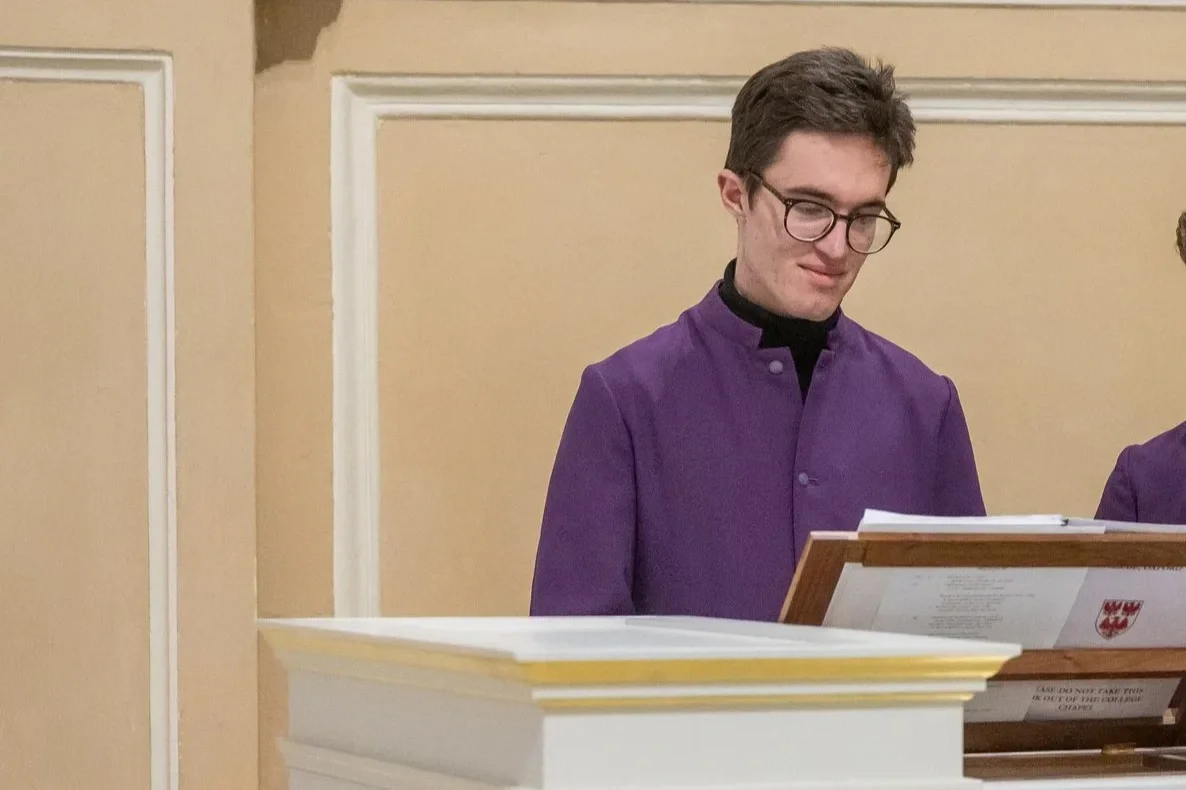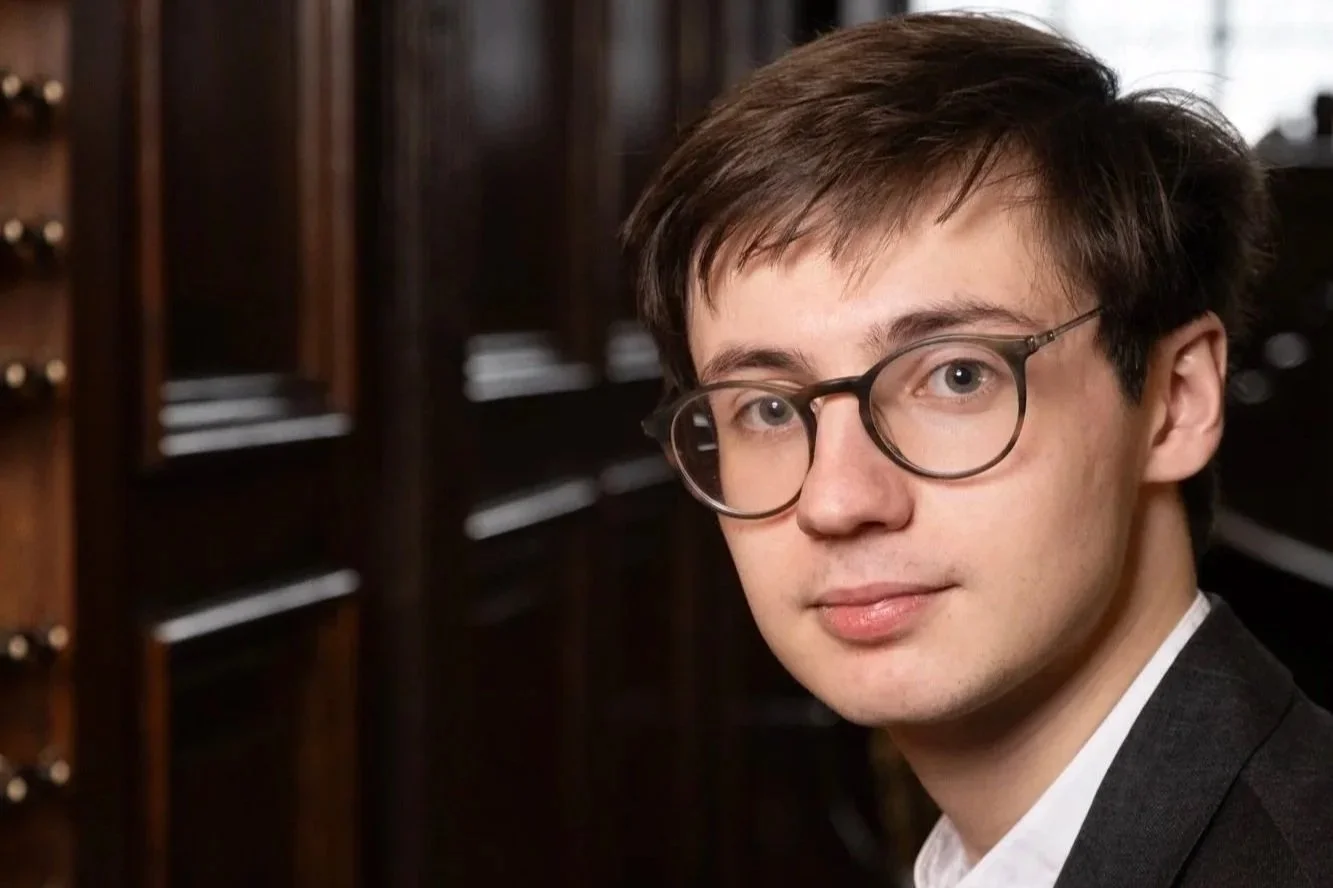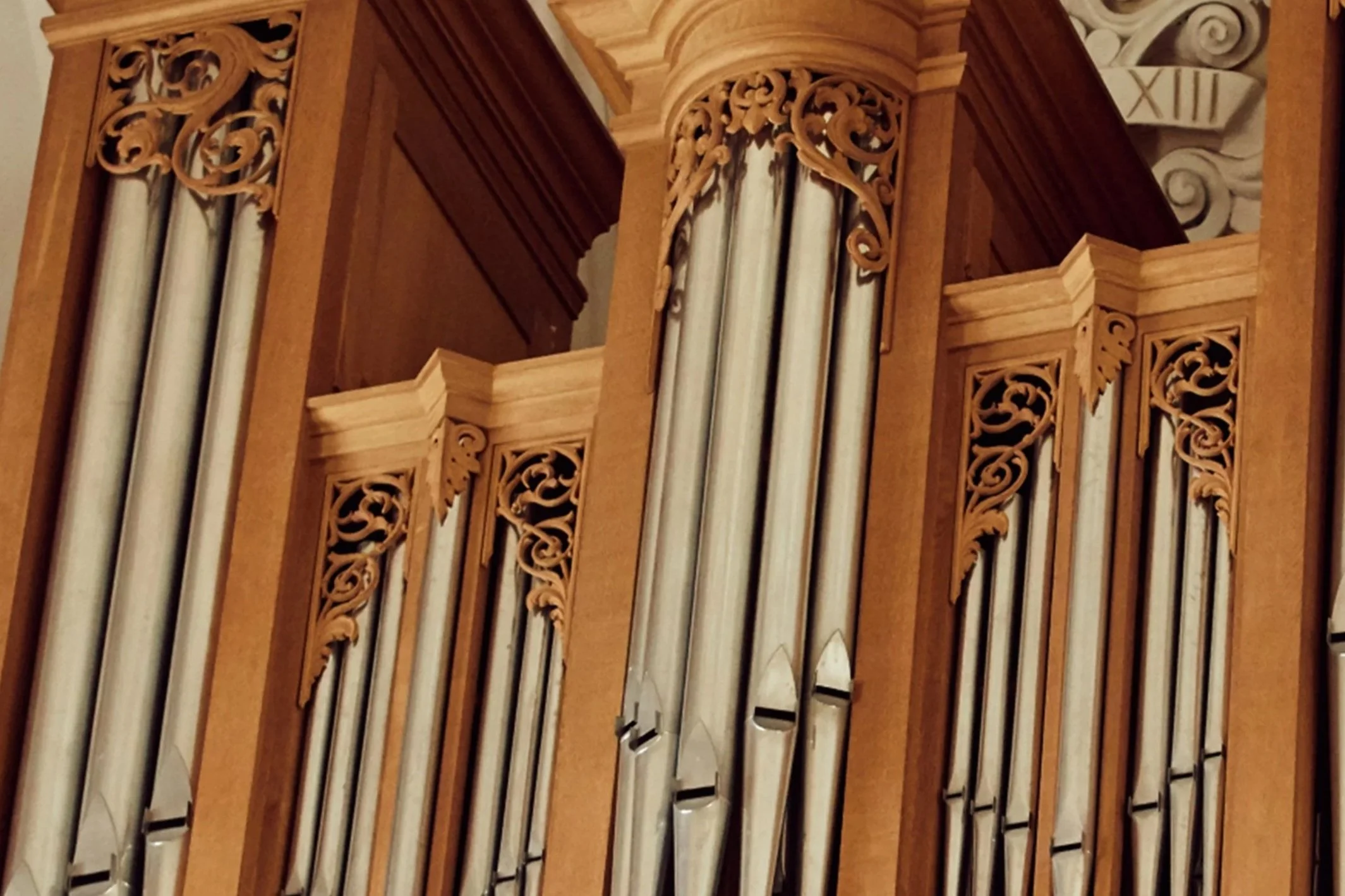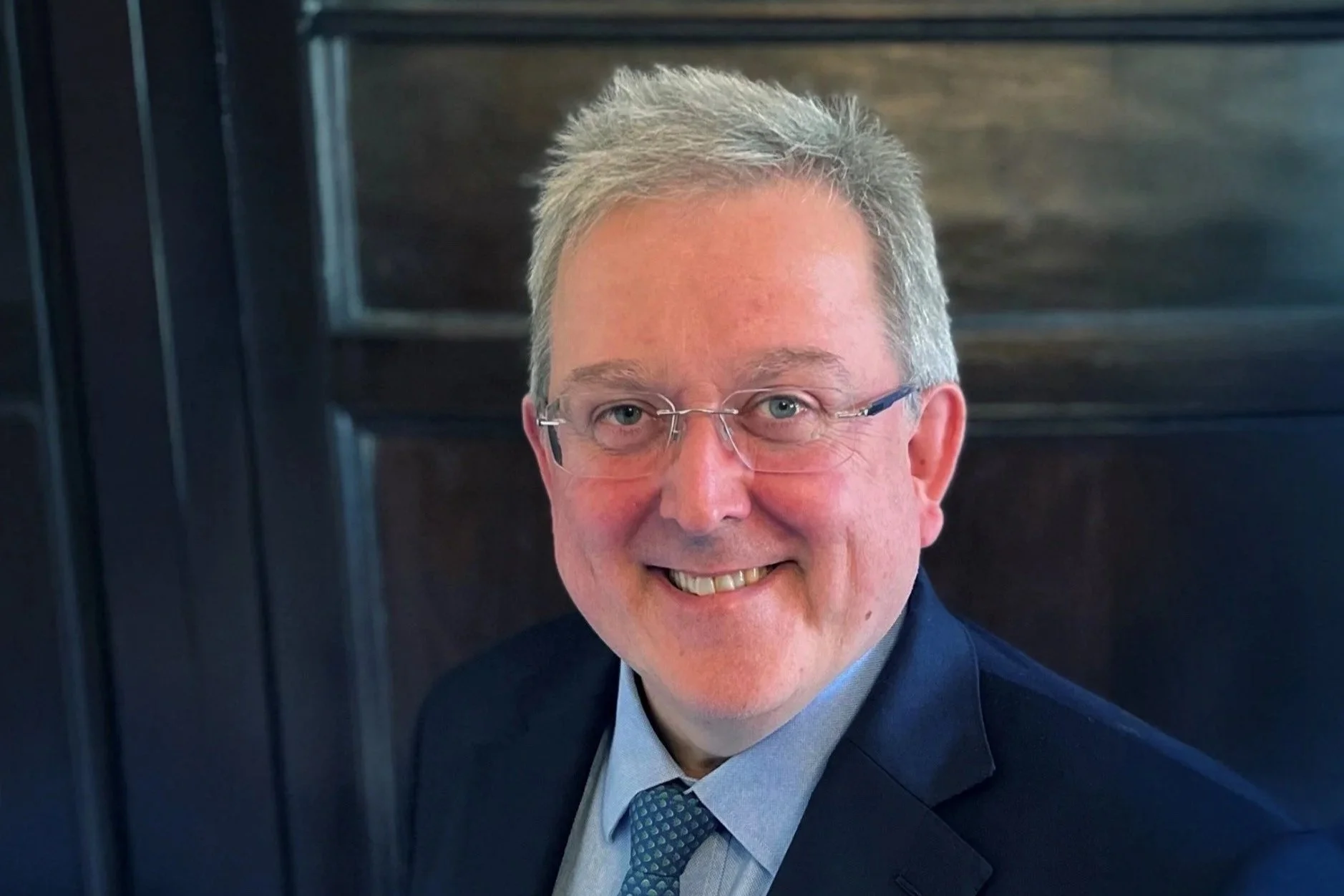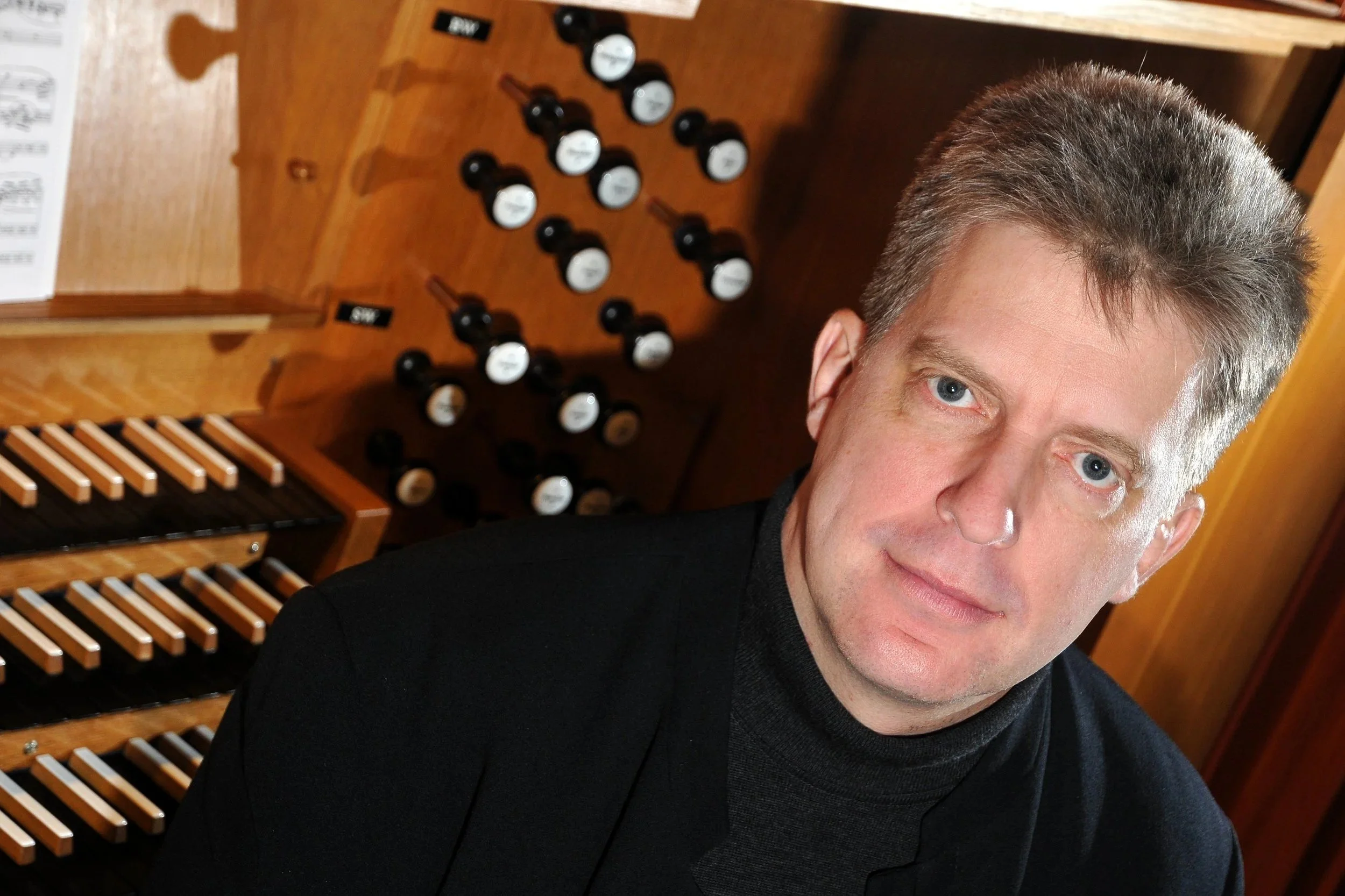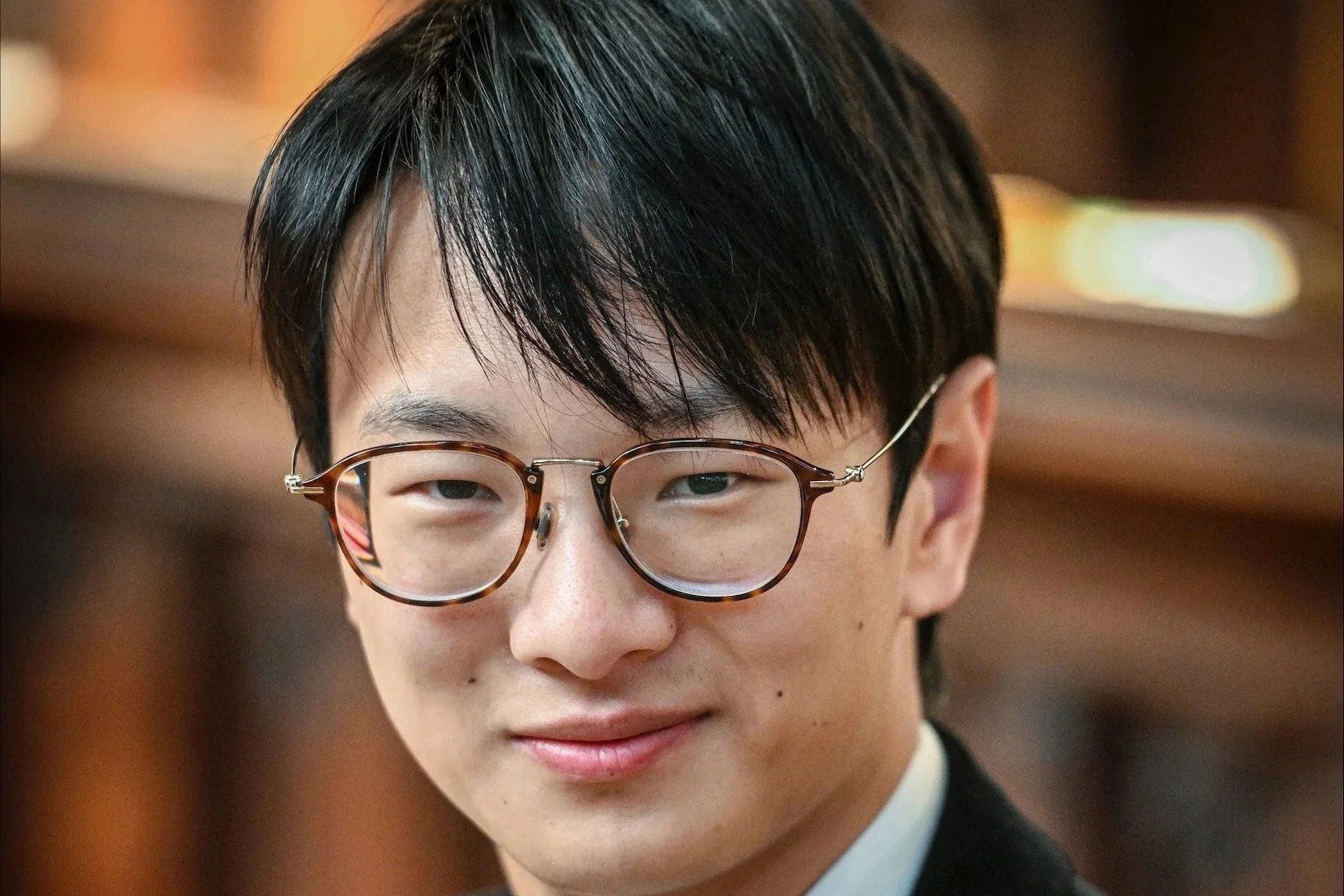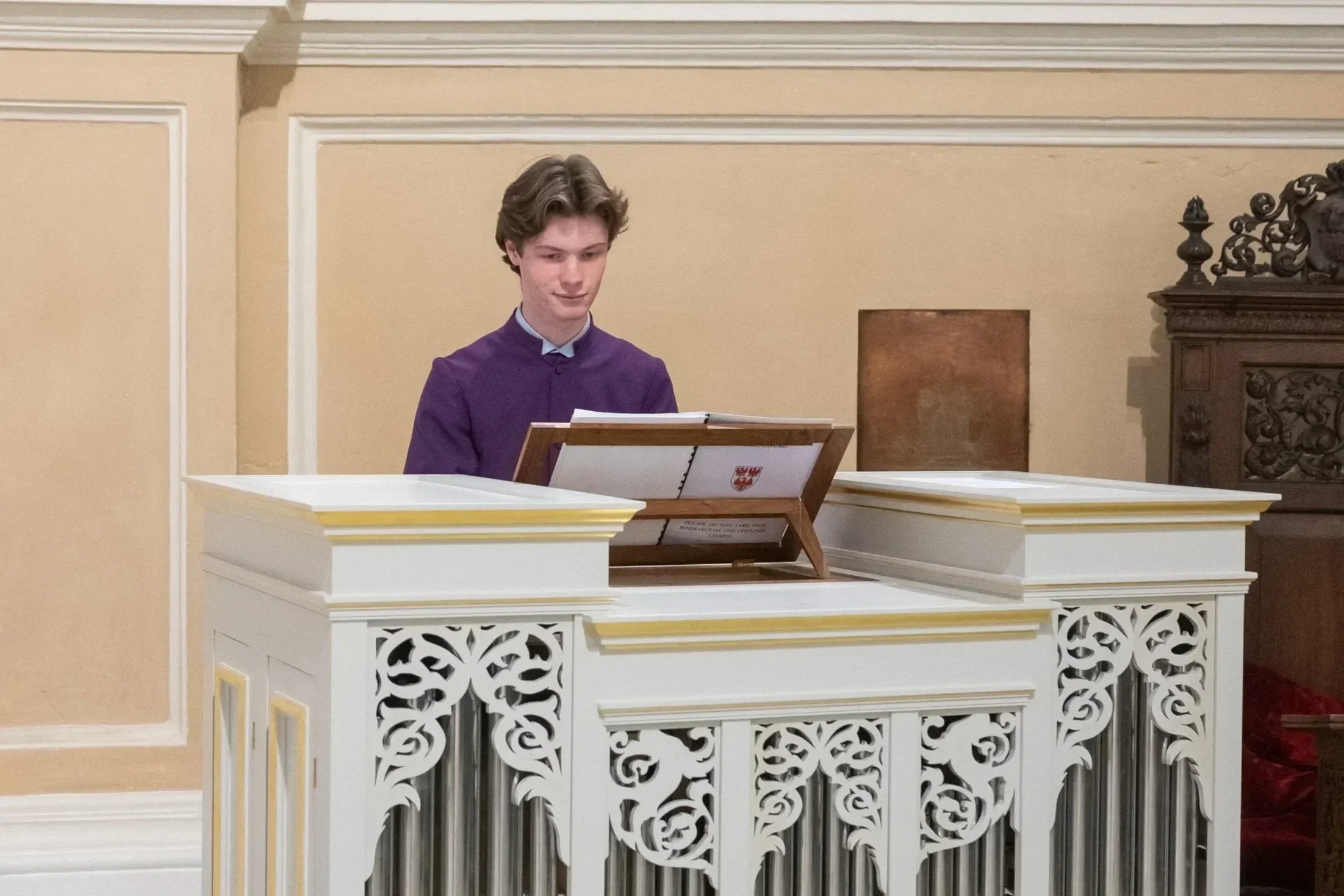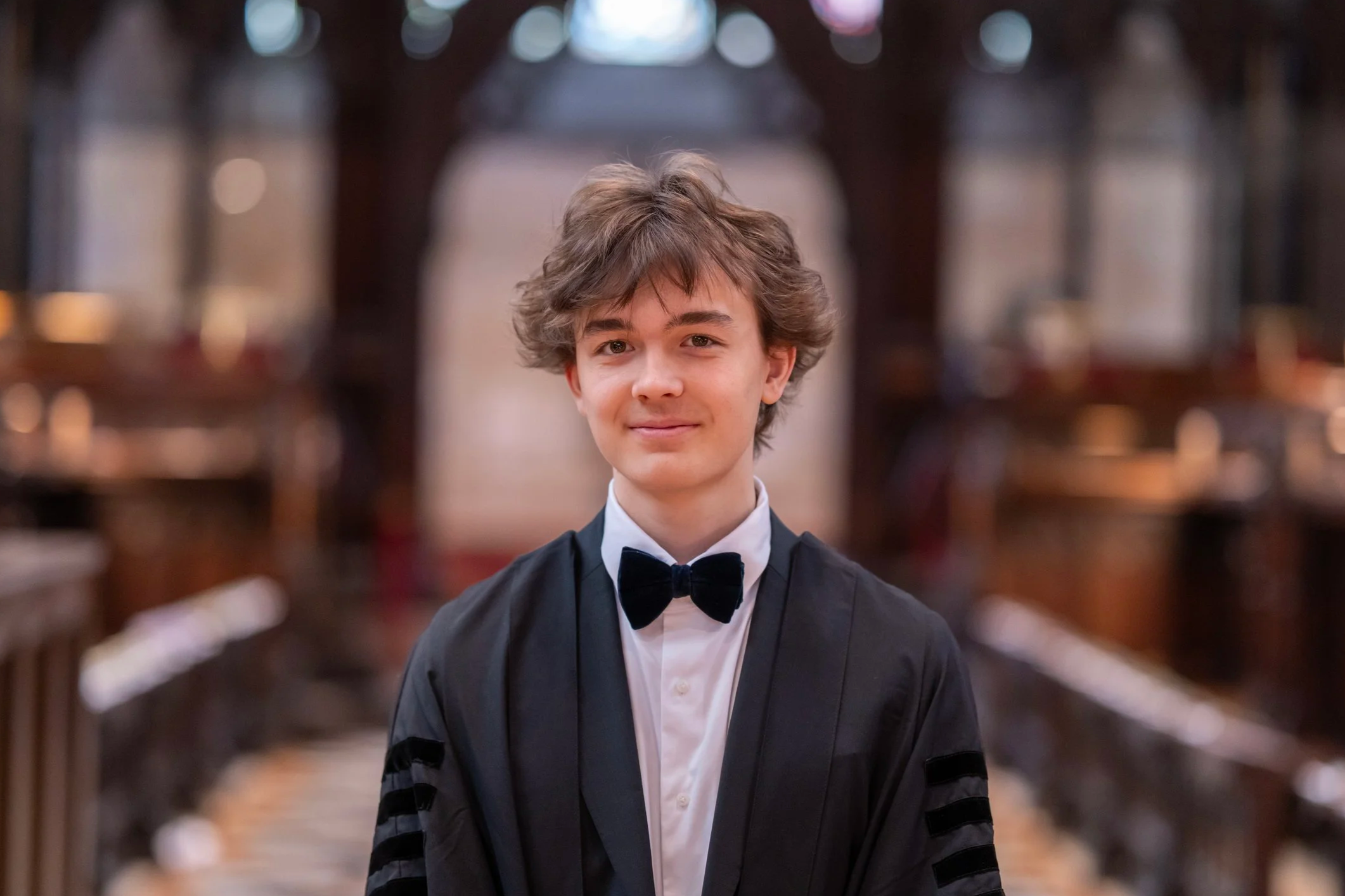Organ Recitals
Join us to enjoy the sparkling sound of one of the UK’s finest organs, bathed in the glorious architecture and acoustic of the Baroque chapel.
Each Wednesday at 1.10pm during term time we host an informal lunchtime recital which ends before 2pm.
Admission is free with a retiring collection.
For disabled access please speak to the Porters Lodge (01865 279120).
If you have any further enquiries please ring the choir office on 01865 289177 or email choir@queens.ox.ac.uk
Hilary Term 2026
Wednesday 21 January – Rudyard Cook, The Queen’s College
Wednesday 28 January – Luke Mitchell, St. Marylebone Parish Church
with Verena Eggensberger (violin) & Arthur Barton (chamber organ)
Wednesday 4 February – John Robinson, Blackburn Cathedral
Wednesday 11 February – Andrew Lumsden
Wednesday 18 February – Joachim Fontaine, Evangelische Kirchengemeinde Saarlouis
Wednesday 25 February – Tingshuo Yang, St John’s College, Cambridge
Wednesday 4 March – Arthur Barton, The Queen’s College
Wednesday 11 March – Pascal Bachmann, St John’s College, Cambridge
Rudyard Cook
The Queen’s College
21 January
J. S. Bach (1685–1750) Fantasia in c BWV 562
Jan Pieterszoon Sweelinck (1562–1621) Hexachord Fantasia
Dieterich Buxtehude (1637–1707) Passacaglia BuxWV161
J. S. Bach
– Jesus Christus, unser Heiland BWV 666
– Jesus Christus, unser Heiland BWV 665
Rudyard Cook is an organist, pianist and cellist currently studying Music at the Queen’s College, Oxford, where he is Junior Organ scholar. Rudyard is currently studying organ with Stephen Farr and has previously learnt with James Orford and David Goode. He also is active as a collaborative pianist and regularly plays for the Eglesfield Music Society. As a cellist, Rudyard plays with the Oxford University Orchestra and Oxford Sinfonietta, as well as playing continuo with New Chamber Opera.
Luke Mitchell
St Marylebone Parish Church
28 January
with Verena Eggensberger (violin)
and Arthur Barton (chamber organ)
Georg Muffat (1653–1702) Toccata Prima
Luke Mitchell Four Improvised Versets on Crudelis Herodes in French late 17th century style
Johann Jakob Froberger (1616–67) Toccata in E minor Girolamo Frescobaldi (1583–1643) Fantasia Prima
Georg Muffat Sonata in D major
Girolamo Frescobaldi Canzona Quarta
Georg Muffat Toccata Septima
Luke Mitchell is a prize-winning London based Organist, Harpsichordist and Conductor. His organ playing spans five centuries of repertoire across a broad recital portfolio, with a particular focus on 17th century repertoire and improvisation. Recent engagements having included recitals at St Paul’s Cathedral, Trinity College Cambridge and all-Bach programmes for the St Alban’s International Organ Festival and Oxford Philharmonic Bach/Mendelssohn Festival. As a harpsichordist he has enjoyed concerto appearances at the London Handel Festival, Keble Early Music Festival and Marylebone Festival, also directing at the latter two. He has enjoyed performing as a continuo player with groups such as Instruments of Time and Truth, Contrapunctus, Academy Baroque Players and The Dunedin Consort, and the Academy of Ancient Music.
He read Music as an Organ Scholar at The Queen’s College, Oxford, graduating with the Boise Scholarship for Performance, and playing live broadcasts on BBC Radio 3 and touring with the renowned choir, and in his final year was organist for their recording of Bach’s Mass in B minor with the Academy of Ancient Music. He further held scholarships with the university Schola Cantorum as a conductor, and with New Chamber Opera, initially as repetiteur and later as Studio Director, leading five staged productions and multiple concerts. He played in all the major recital series, and studied organ with Stephen Farr, William Whitehead and Pieter Van Dijk, and began harpsichord studies with Laurence Cummings. He is currently a post-graduate Harpsichord student at the Royal Academy of Music, where he won the Harriet Cohen early keyboard prize in 2025.
He is currently Assistant Director of Music at St Marylebone Parish Church, and co-directs the St Marylebone Festival with Bertie Baigent. Forthcoming engagements includes directing a tour of Charpentier’s Christmas works, a recording of organ music from the French Grand Siécle, and a recital including his own transcriptions of scenes from Wagner’s Parsifal at Westminster Abbey.
Arthur Barton &
Rudyard Cook
The Queen’s College
4 February
J. S. Bach (1685–1750) Toccata in F BWV 540
Nicolas de Grigny (1672–1703) Premier Livre d’Orgue (1699/1711)
– Cromorne en taille à 2 parties
– Récit de tierce en taille
– Dialogue sur les grands Jeux
Louis Vierne (1870–1937) Vingt-quatre pièces en style libre
– Lied
– Berceuse
J. S. Bach Prelude & Fugue in b BWV 544
Due to illness, this programme is a departure from the originally billed performance.
Andrew Lumsden
11 February
Dieterich Buxtehude (1637–1707) Praeludium in C BuxWV137
Jan Pieterszoon Sweelinck (1562–1621) Variations on Onder een linde gruen
J. S. Bach (1685–1750)
– Pastorella BWV 590
– Nun komm, der Heiden heiland BWV 659
– O mensch bewein BWV 622
Felix Mendelssohn (1809–47) Prelude and Fugue in C minor
Andrew Lumsden was educated at the Royal Scottish Academy of Music and Drama, before being awarded an organ scholarship at St John’s College, Cambridge. In 1985 he was appointed Assistant Organist at Southwark Cathedral, and in 1988 he moved to Westminster Abbey as Sub-Organist where he played for many significant national occasions, including the memorial services for Laurence Olivier and Peggy Ashcroft, and the 50th anniversary service for the Battle of Britain. In 1992, he moved to Lichfield Cathedral to become Organist and Master of the Choristers, and in 2002 he became Director of Music at Winchester Cathedral. Alongside his other current commitments, he is Music Director of the Waynflete Singers.
During his time at Winchester, the boy and girl choristers took part in two BBC proms concerts, singing with the Berlin Philharmonic Orchestra and Choir under Sir Simon Rattle in 2014, and then in 2015, with the Danish National Orchestra conducted by Fabio Luisi. His recordings with the Choir received widespread acclaim and their CD of the music of John Tavener received a Gramophone magazine’s Editor’s Choice Award. In 2017, the boy choristers and lay clerks took part in two Papal Masses in St Peter’s Square, singing with the Sistine Chapel Choir. He has worked with many of the country’s leading ensembles, including the BBC Concert Orchestra and BBC Singers, the Bournemouth Symphony Orchestra, the English Chamber Orchestra and the baroque group Florilegium. In 2023, he was awarded an Honorary Doctorate for services to music by the University of Winchester. In 2024, the boy choristers and Andrew won a Grammy award for their part in recording of the soundtrack of a Star Wars video game.
As an organist he has given recitals across the world, including venues from San Francisco to Sydney and Bergen to Harare. He was the youngest soloist to give a recital on BBC Radio 3 (he was 17 at the time) and has been a regular broadcaster ever since. In 2018 he was the first European organist to give a recital on the new organ in Auckland Cathedral, the largest organ in the Southern Hemisphere.
Since he left Winchester Cathedral in 2024, Andrew is pursuing a busy career as a recitalist and choir trainer, as well as playing for services in cathedrals across the country. In the last year he has been to the USA twice, running a course for choir directors at St Thomas Church, 5th Avenue New York and working with three Cathedral choirs in South Carolina. For the Michaelmas Term 2025 he is working at New College, Oxford, as Director of Music where he started his musical career as a chorister in 1971 under the direction of his father, Sir David Lumsden.
He presents a weekly classical music radio show on Southampton’s VoiceFM.
For further information, please visit andrewlumsden.com.
Joachim Fontaine
Evangelische Kirchengemeinde Saarlouis
18 February
Johann Pachelbel (1653–1706) Toccata in c
Dietrich Buxtehude (1637–1707) Prelude in d BuxWV 144
J. S. Bach (1685–1750) Prelude and Fugue in e BWV 533
Ludwig Boslet (1860–1951) Sonate Nr. 2 in d-moll Op.6
– Allegro – Largo – Finale: Maestoso (Fuge)
Paul de Maleingreau (1887–1956) Credo ut redemptor meus vivit
Hans André Stamm (b.1958) Rondo alla celtica
After his studies in music and philosophy in Saarbruecken, Paris (with Jean Pierre Leguay, Notre-Dame), Basel (Schola Cantorum) and Oxford (The Queen’s College, 1989) Joachim Fontaine became a performer scholar. He lives with his family in Saarlouis – near to Luxembourg and France – and teaches at university and the music academy of the Saarland and also at a "Musisches Gymnasium". Besides doing music he works regularly as researcher, author and radio broadcaster. Some of his recordings with the Kantorei Saarlouis, Ensemble UnaVoltae and Grande Société Philharmonique (for K 617, Harmonia Mundi, cpo and others) were welcomed by the press as pioneering work and awarded with prizes such as the "Grand Prix du Disque". In his Oxford days his organ teachers were David Sanger and Peter Hurford. In summer 2025 the German National broadcasted his edition and first (modern) performance of ‘Omnipotence’, a pasticcio by Handel/Samuel Arnold (London 1774), he edited from sources in the British Library and Royal College of Music.
Tingshuo Yang
St John’s, Cambridge
25 February
J. S. Bach (1685–1750) Prelude and Fugue in G major BWV 541
Jean Langlais (1907–91) Celui qui a des oreilles, qu’il écoute (from Cinq Méditations sur l’apocalypse)
J. S. Bach Dies sind die zehn heil’gen Gebot BWV 678
Thomas Attwood Walmisley (1814–56) Larghetto
J. S. Bach
– Jesus Christus, unser Heiland BWV 688
– Mit Fried und Freud ich fahr dahin BWV 616
Jehan Alain (1911–40) Introduction et Variations from Suite JA 69
J. S. Bach Prelude and Fugue in G minor BWV 535
Born in China in 2004, Tingshuo Yang is a pianist, organist, and composer. He studied piano at the Royal College of Music Junior Department from 2012 to 2016 and at the Conservatoire de la Ville de Luxembourg from 2017 until 2021. In 2018 Tingshuo was awarded a music scholarship to Eton College, and since 2023 he has been Organ Scholar at St John’s, where he is studying for a BA degree in music.
Tingshuo achieved his LRSM in piano performance in 2016. In April 2019, he made his solo piano debut with the Luxembourg Philharmonic Orchestra, and the following year he opened the ‘Young Luxembourgish Classical Talents’ recital series in Berlin. In 2021 he was awarded the ‘Diplome de Concert’, and the ‘Prix du Meilleur Laureat’ at the Conservatoire de la Ville de Luxembourg.
His debut recording, J.S. Bach: Clavierübung Part I – Partitas, was released on Luxembourg Classics in June 2024 to critical acclaim. It was chosen as Album of the Week on Radio 100,7, with Luc Boentges praising the recording. Pizzicato described the album as ‘timelessly beautiful’ and ‘spontaneously creative’.
Alongside his achievements as a pianist, Tingshuo has distinguished himself as an organist. He was Highly Commended at the Northern Ireland International Organ Competition in 2023 and 2024, became a Fellow of the Royal College of Organists in 2025, and made his London debut at St John’s Smith Square that same year. Tingshuo’s playing is regularly broadcast on BBC Radio 3 and Radio 4.
As a composer, Tingshuo has won first prize in the D’Overbroekes Composition Competition and was runner-up in both the RCO Composition Competition and the Homerton College Composition Competition in 2025. He was shortlisted for the BBC/NCEM Young Composers Award in 2024 and the Charles Wood Composers’ Competition in 2025.
Tingshuo has received regular guidance from Geoffrey Govier, Jean Muller, Jenny Stern, Joseph Middleton, Philip Scriven, Colin Walsh, Martin Baker, Claude Lenners, and Raymond Yiu. He has participated in masterclasses with Nathan Laube, Ludgar Lohmann, James David Christie, Katelyn Emerson, and Andrew Dewar. He also worked with David Hill as the organ scholar of the Charles Wood Festival in Armagh in 2023 and 2024.
Arthur Barton
The Queen’s College
4 March
Arthur Barton is the junior organ scholar at Queen’s. He accompanies for, and occasionally conducts, the thrice weekly evensongs in the chapel. He is in first year studying music. Previously, he was an organ scholar at Sherborne Abbey where, likewise, he assisted in the accompanying of services and other events. He studies organ with Stephen Farr and has previously studied with Margaret Phillips and Callum Alger.
Pascal Bachmann
St John’s, Cambridge
11 March
J. S. Bach (1685–1750) Ricercar à 6 (Musikalisches Opfer) BWV 1079/ii
Johannes Brahms (1833–97) Prelude and Fugue in A Minor WoO 9
Nicolaus Bruhns (1655–97) Prelude and Fugue in E Minor ‘The Great’
J. S. Bach Prelude and Fugue in B Minor BWV 544

